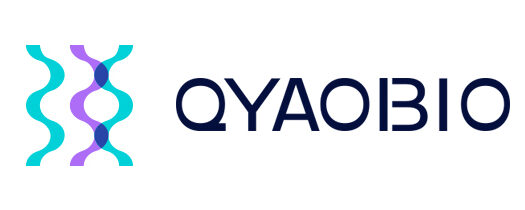Peptide Sulphation
Peptide sulfation is a technical challenging synthesis.
The peptide sulphation is a technical challenging synthesis. It is difficult to synthesize sulfotyrosine (sTyr) with satisfactory yield and purity. Considering the tyrosine-sulfated peptides stability characteristics in different conditions: stable under basic conditions, while unstable in acidic conditions. Qyaobio develop the reliable and robust procedures for peptide sulfation. In order to guarantee high success rate of sulfated peptides for our customers. Furthermore, we also can supply wide range of tyrosine-sulfated peptides with different sequences and specifications.
Sulfated Peptides
As sulfated peptides have different stability under different conditions, the efficient synthesis of sulfated peptide is technically challenging. Normally, the sulfation occurs exclusively on tyrosine (Tyr) residues.
Tyrosin O-sulfation is a post-translation modification of protein and peptide, it is a widespread occurrence among peptides and proteins of multicellular eukaryotic organisms. Almost 1% of the total organism proteins are subjected to tyrosine sulfation. The common human proteins undergo tyrosine sulfation including: serine protease inhibitors, adhesion molecules, G-protein-coupled receptors, coagulation factors, hormones and extracellular matrix proteins. Meanwhile, tyrosine O-sulfate is a stable molecule, it is excreted in urine from animals.
The tyrosine-sulfated proteins can enhance protein-protein interactions, and implicate multiple biological processes. The hydroxyl group of tyrosine is a prominent position for sulfation. Moreover, there are still indication of serine (Ser) sulfation and threonine sulfation.
Tyrosine Sulfate
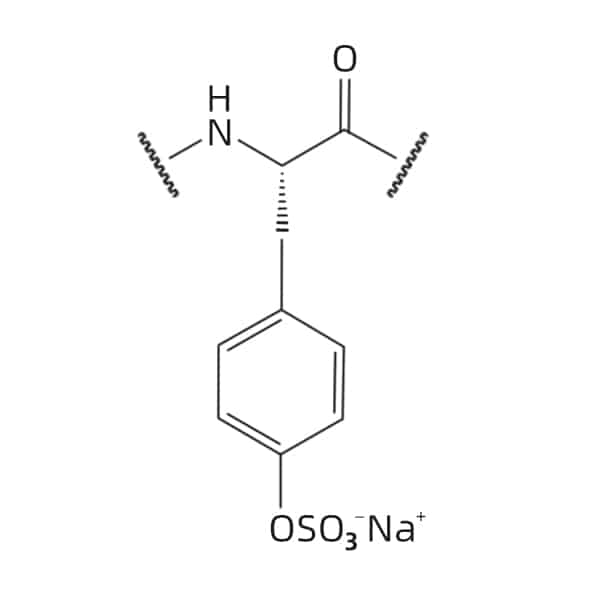
Serine Sulfate
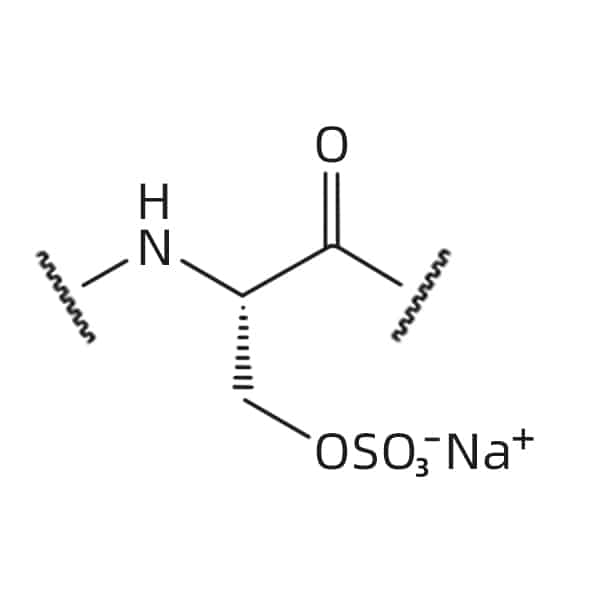
Threonine Sulfate
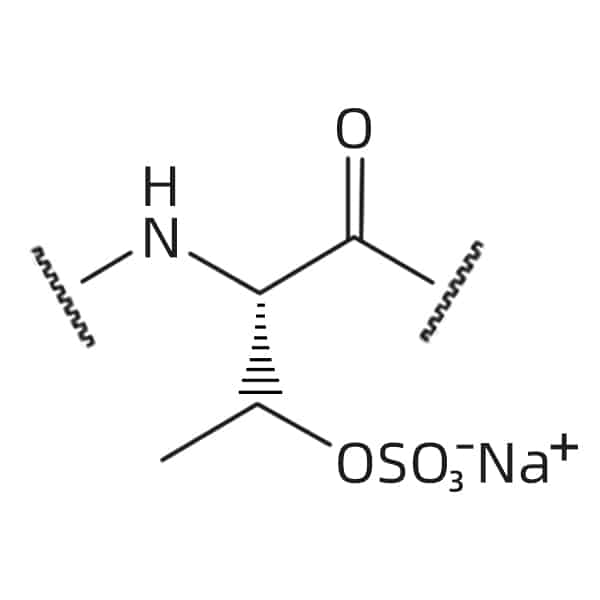
Sulfated Peptide Applications
Sulfated peptides has widely applications in molecular biology research and study.
Models for Chemokine Receptor
Sulfopeptide can be models for chemokine receptor in N-terminal regions. As many receptors of chemokine contain sulfated tyrosine in N-terminal regions, these residues will affect the interactions between chemokines and receptors. In reason of the high flexibility of chemokine receptors, the sulfur peptides are reasonable mimic of N-terminal in chemokine receptors.
Enhancement of Chemokine Affinity
The inhibition of sulfation or mutation of tyrosine residues in receptors will result in reduction in chemokine binding affinity. Therefore, sulfated peptides derived from chemokine receptors have higher affinity than their non-sulfated analogues. The sulfopeptides homogeneity is possible to determine the specific affinity enhancements from each individual tyrosine resides. The chemokine binding affinity have remarkable difference in the same receptor peptide with different sulfation positions.
Modulation of Chemokine Selectivity
Chemokines and receptors form a complex network, most receptors can respond to most chemokines and several cognate chemokins, then activate more than one receptor. Therefore, differently sulfated states of peptide in the receptor will have distinct selectivity profiles among cognate chemokines. Furthermore, tyrosine sulfation is a possible mechanism to regulate the responses of receptors among possible ligands.
Tyr(SO3H)
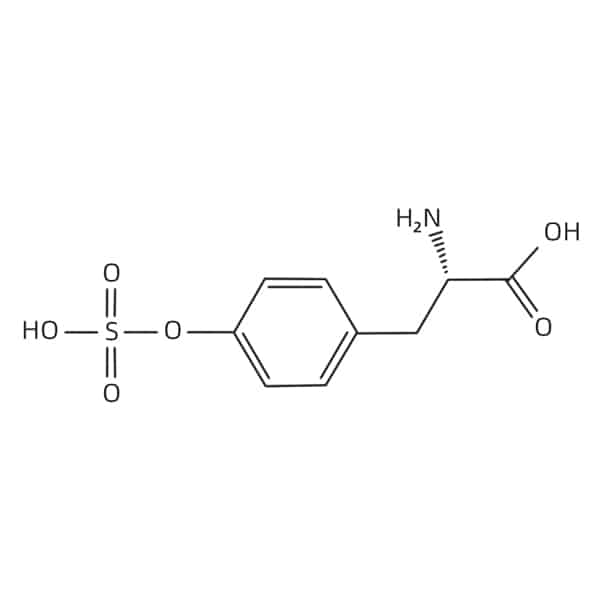
Ser(SO3H)
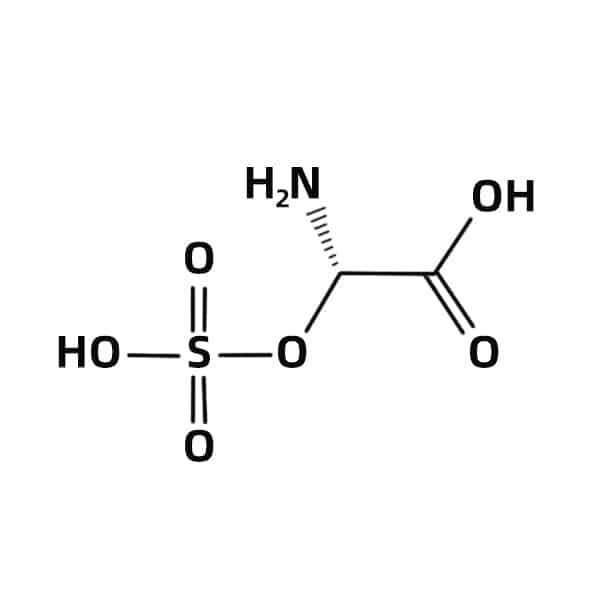
Thr(SO3H)
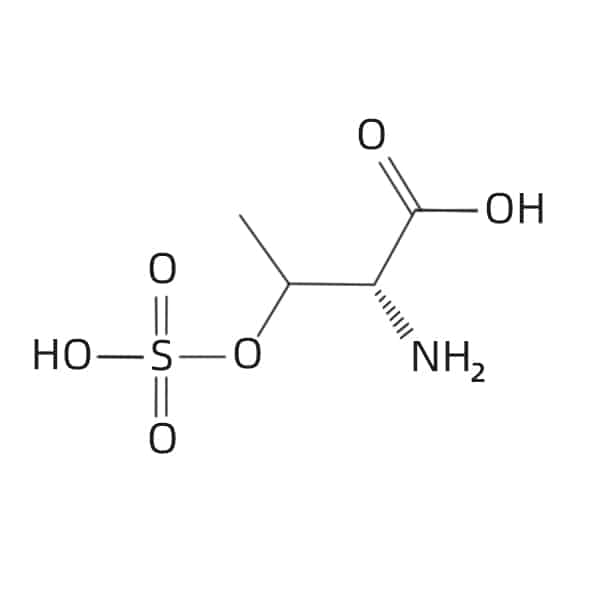
In reason of the unique characteristics of sulfated peptides, there are widely application in various research and study:
- Identification and synthesis of post-translation modifications
- Enzyme specificity and mechanism
- Interaction in antibody-antigen
- Interaction in immune and quantitative receptor-ligand
- ELISA measuring standard for antibody
- Epitope mapping of proteins
- Production of monoclonal and polyclonal antibody
Qyaobio provides peptide sulfation service for our global customers, we have reliable synthesis procedure with our excellent technology. Qyaobio has extensive sulfated peptides in structure development. We are the company of choice to manufacture your sulfated peptide requirements with competitive prices.
Call Us
+86(021)-50795728
+86(027)-60707970
